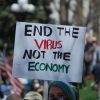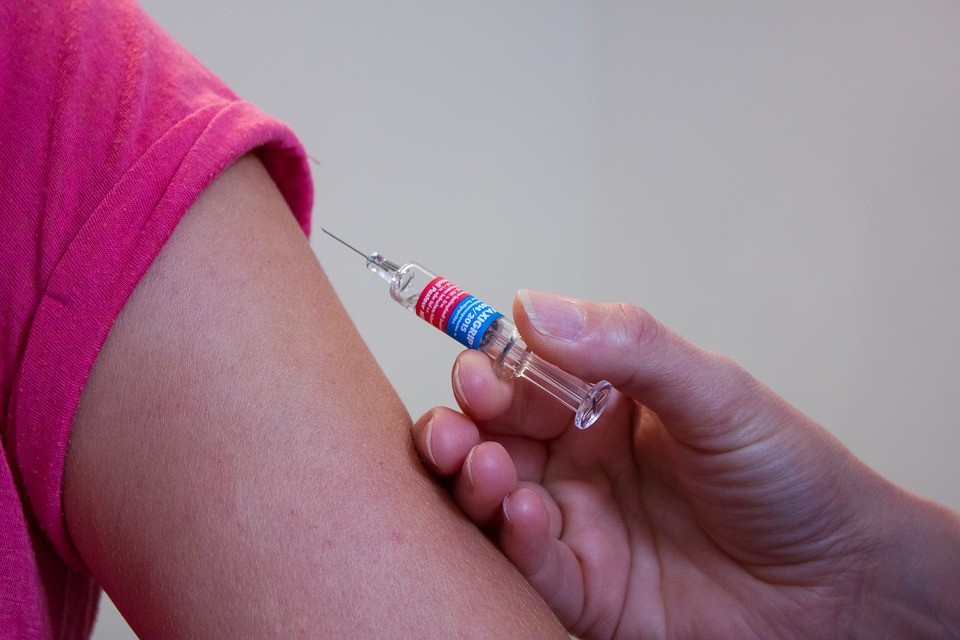The COVID-19 pandemic may be responsible for changing opinions on vaccination requirements among some Coloradans, especially women and unaffiliated voters 50 and over.
Women over 50 displayed a 14% increase in support for a bill under consideration at the Colorado legislature tightening vaccination requirements for school children, and unaffiliated voters over 50 supported the proposed law by 12% more than in November, according to a poll, conducted by Colorado-based Keating Research this month.
The poll shows an overall increase in support, from 73% to 79%, for a bill, which would mandate parents to acquire either an exemption form from a healthcare provider or take an online course on vaccines before their children could go to school without being vaccinated.
Eighty-eight percent of likely Colorado voters believe all children should receive vaccinations to prevent contagious diseases like measles, mumps, and chickenpox before attending school or a childcare center, according to a poll released Wednesday by public health nonprofit organization Healthier Colorado,
Currently, the vaccination rate among Colorado kindergartners is the lowest in the country.
Vaccines have been a hot topic for debate at the Colorado legislature since before COVID-19 emerged. Legislation and protests by “anti-vaxxer” groups are expected elements of life at the Capitol.
But now that the virus has spread into the state, the vaccination issue has moved from an obscure point of conflict, propelled by aggressive activists, to regular headline news.
Michele Ames, spokesperson for Colorado Vaccinates, a coalition that advocates for higher vaccination rates in Colorado, told the Colorado Times Recorder that she thinks the uptick in support for stricter vaccination legislation in Colorado could be from people’s current experiences of COVID-19.
“I would assume that our experience in this moment is clarifying for people who were confused about their feelings on vaccines,” said Ames. “The questions that we asked are primarily the questions that we asked in the fall of 2019. So one, I think, could reasonably assume that the change comes from the situation that we find ourselves in today.”
Ames, however, didn’t suggest that legislation similar to the Senate bill would be introduced to cover coronavirus vaccinations, as well.
“In terms of a coronavirus vaccination, we don’t have a position on that, nor would we want to usurp the state and the state health board specifically,” Ames said.
There is no plan to mandate COVID vaccinations in Colorado. According to health experts, certain professions will likely have mandates (as is already the case for medical workers receiving an annual flu shot), and there is speculation that those who choose to opt-out of the vaccine could be forced to quarantine if an outbreak occurred, so as to not endanger vulnerable populations.
According to Ames, this tactic is very similar to the procedure already in place when a vaccine-preventable outbreak occurs in schools. Children missing vaccinations may be sent home to avoid contracting the illness.
Despite the rising numbers in support of children being vaccinated for major infectious diseases, there is still significant backlash as some conservatives fight against stricter vaccine rules–even against a future coronavirus vaccination.
Republican Party groups in several Colorado counties have publicly denounced strict vaccine mandates, stating that parents should have the final say in whether their children receive vaccinations.
Michael “Heck’ve a Job” Brown, former disgraced director of the Federal Emergency Management Agency during Hurricane Katrina, now a radio talk show host in Colorado, announced he does not plan on taking a COVID-19 vaccine, as he doesn’t believe it will be safe enough despite FDA standards.
Coronavirus or not, some Coloradans have been adamantly opposed to stricter vaccination requirements.
From September through December, Colorado state Sen. Vicki Marble (R-Greeley) and state Rep. Lori Saine (R-Firestone) held anti-vaccine summits, where they had testimonials from, among others, a doctor notorious for prescribing dangerous therapies for children with autism, and a climate scientist well-known for being a vaccine denialist–both spreading information easily proven to be false.
At the end of the day, however, with respect to a COVID-19 vaccine, the concern is less about people not willing to take the vaccination but instead about getting the vaccine out to vulnerable populations.
Those without health insurance, homeless populations, and poor neighborhoods could easily be left without vaccinations as the vaccine is dispensed to the most privileged, according to public health advocates.




